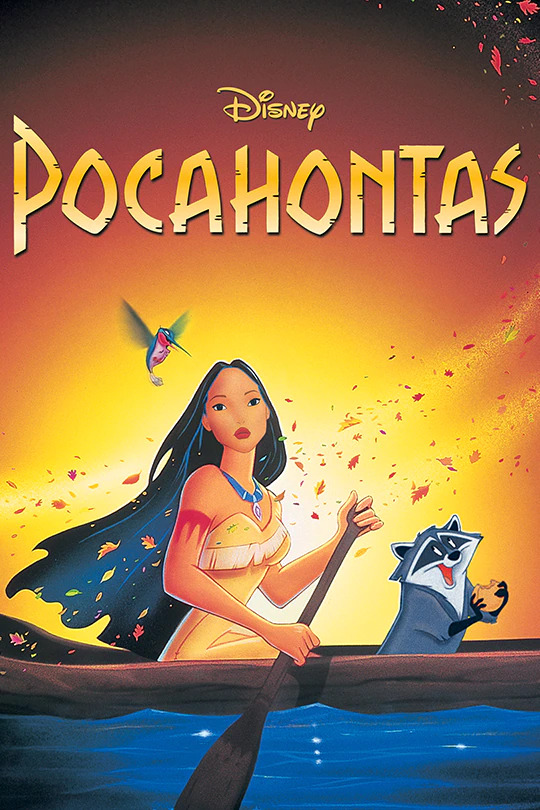Disney’s 1995 animated film “Pochahontas” is a problematic depiction of Native American culture and history. PHOTO CREDIT: disney.com
This Native American Heritage Month, I decided to revisit my unfortunate first introduction to Native American heritage and culture––Disney’s 1995 animated film, “Pocahontas.”
I don’t think I’m alone in saying that, as someone not of Native American descent, my earliest lessons about Native Americans came from the problematic teachings in the classroom about the First Thanksgiving, stories about Sacagawea and, of course, “Pocahontas.”
Before this past week, I hadn’t seen the Disney classic in at least 10 to 15 years. While “Colors of the Wind” is admittedly my favorite Disney song and “Just Around the Riverbend” has made multiple appearances on my Spotify “On Repeat” playlist, I had no interest or intentions to rewatch the film. The more I learned about accurate Native American history outside of the classrooms, the more I wanted to distance myself from the inaccurate, censored version that we’re often told to paint the United States and the pilgrims in a more positive light.
“Pocahontas” is based on the life of a Powhatan woman, made into the titular character of the same name and the arrival of English colonial “settlers” from the Virginia Company, including the romanticization of her encounter with soldier and explorer John Smith. Alan Menken and Stephen Schwartz deliver on the soundtrack (no surprise there), and it’s beautifully animated, with multiple shots of Pocahontas’ long, luscious hair flowing in the wind and the long, flowing river. It’s just not historically accurate, to put it politely.
Following its release, Chief Roy Crazy Horse of the Powhatan Renape Nation stated that the film “distorts history beyond recognition” and “perpetuates a dishonest and self-serving myth at the expense of the Powhatan Nation.” He also claimed that Disney refused the tribe’s offers to help create a more honest depiction, both culturally and historically.
The character and real-life Pocahontas share little more than a name, and even that isn’t entirely true. The Powhatan Nation’s website formally calls her Matoaka, or “the flower between two streams.” Pocahontas was just a nickname, meaning “the naughty one” or “spoiled child.” In Disney’s depiction of her, she manages to create peace between the colonizers and her tribe through her and John Smith’s love –– along with some help from Grandmother Willow, a talking tree, and the wind, which allows her to magically speak and understand English. In reality, while she did establish a friendship with Smith, as the colonists expanded their settlements, the Powhatans felt their lands were threatened and conflict arose. They never had a romantic relationship.
Instead, after meeting Smith, Matoaka was captured during the First Anglo-Powhatan War at the age of 17, held captive for about a year. As a condition of her release, she married John Rolfe, who appears in the sequel which I have never seen, and likely never will. They had a son and returned to England, where she became a sort of celebrity, before tragically dying at 21, which was, for obvious reasons, not included in “Pocahontas 2: Journey to the New World.”
While watching the plot that I’d completely forgotten unfold, I couldn’t help but think about all of the kids like myself who grew up thinking this was the true story of Pocahontas and the first settlers of Jamestown. That while there was some tension between them and the Native Americans, peace and harmony prevailed, and the “bad guy” who just wanted to kill the “savages” and take over completely got what he deserved.
I’m not saying that young children should watch an animated Disney film about the disease and death these colonizers brought to the Native peoples, but “Pocahontas” isn’t a proper introduction to this culture and part of history either. I felt a sense of shame watching it, as I couldn’t help but enjoy the songs and some of the humor. At the same time, any joy I got from the film felt completely overshadowed by the beyond-problematic song “Savages,” and the knowledge I’ve gained about the film’s inaccuracies since I first watched it as a child.
This Native American Heritage Month, I suggest you do some research and try to unlearn what you may have been taught early on from such inaccurate depictions like “Pocahontas.”

